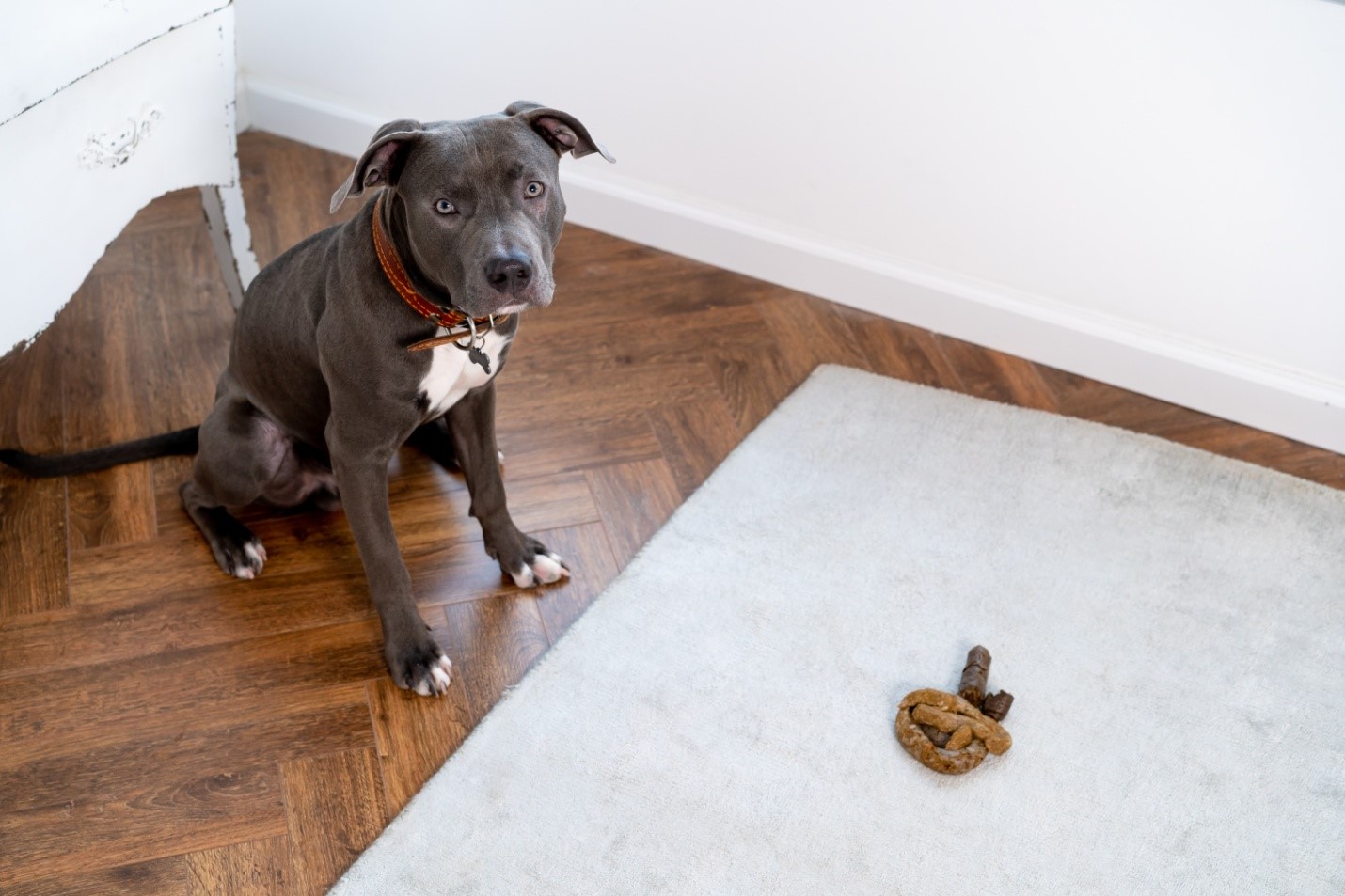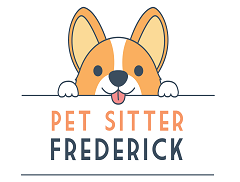Why Is Your Dog Pooping Inside the House?

Should you worry that your dog has pooped inside the home? If it occurs rarely, then it’s not a cause of concern. Even properly potty-trained dogs can sometimes poop inside the home.
However, if your fuzzy companion poops in your home frequently, then you need to identify the problem causing this behavior. Remember, no dog does this on purpose; therefore, shouting at your dog is counterintuitive.
By identifying the reason behind such mishaps, you can help your dog in rectifying its pooping problem.
1. Separation Anxiety
Dogs enjoy the companionship of their humans. However, if they’re left alone in the house for longer periods, it can damage their mental health.
A long separation between a dog and its owner leads to separation anxiety in the dog. Whenever you’re about to leave home and if you see signs such as your dog scratching on doors and windows, whining, and howling, then it’s because it doesn’t like staying alone.
How to help your dog in overcoming separation anxiety? If you aren’t able to give enough time to your dog during the day, take it to a daycare center such as dog daycare Omaha.
Tips for tackling separation anxiety include:
- Ask your vet about calming aids.
- Not causing a commotion in front of your dog when entering or leaving the house.
- Seeking advice from the vet about prescription drugs for calming anxiety.
- Reserve an open room for your dog with its favorite toys and windows when going out.
- Placing a recently worn cloth near your dog. The dog will feel calm by your scent.
2. Inadequate Potty Training
Many owners rush in training their doggy to poop outdoors. Whether it’s an adult dog or a pup, potty training at home requires consistency and time.
If you discover that your doggy can restrain from pooping indoors throughout one day, then that’s progress. However, it doesn’t mean that training should be stopped. Potty training requires several months for a doggy to master.
Allocate a slot of your daily routine for taking your dog outdoors for morning and night walks and even after meals. In this way, your dog will spend less time indoors without getting the opportunity to relieve itself. Another advantage is that these outdoor timings usually correspond to when the dog wants to go outdoors.
Through the practice of a fixed routine and positive reinforcement, you’ll be able to train your dog to poop outdoors.
3. Phobia of Loud Sounds
Several dogs pee or poop inside the home when they feel stressed or scared. Loud sounds such as the rumbling of thunder and the cracking of fireworks can stimulate fear in them.
Owners can train their dogs to feel calm during loud sounds by taking precautionary measures.
· Reserve A Safe Spot
Usually, dogs like a dark and small place as a resting spot. This can be a crate, a closet, or a spot under your bed. When encountered with loud sounds, train your dog (don’t force) to move to its favorite resting spot.
Remember to reward it with treats and toys so that your doggy doesn’t link the place to loud noises but positive vibes.
· Deviate Your Dog’s Attention
As soon as you notice signs of restlessness in your dog when a loud noise is occurring, distract it by giving it something fun to do. Practice tricks with your doggy and give treats, play fetch with your doggy, or give toys.
Distracting your dog may seem ineffective the first time. However, with time, your dog’s fear of loud noises will begin to diminish.
4. Medical Conditions
If you notice that your dog’s stools are loose or your dog has diarrhea, then you need to take it to the vet immediately. Such signs could indicate that your dog is suffering from gastroenteritis. This disease causes inflammation of the stomach or small and large intestines.
Causes of gastroenteritis include:
- A food allergy or intolerance
- Bacteria
- Viruses
- Parasites such as roundworms, giardia, and hookworms
- Inflammatory Bowel Disease
- Bowel cancer
Get your doggy checked by a veterinarian to rule out any possibility that your dog is suffering from an illness.
5. Aging
An aging dog is likely to have more indoor pooping incidents. As dogs mature, their ability to control bowel movement decreases, which is called fecal incontinence in biological terms. The reasons behind this include:
a) Inability To Hold Stool For Longer Periods
Owners of older dogs may notice that their pets may have to attend nature’s call more frequently as compared to their younger counterparts. This is because, with time, the muscles that hold the feces inside dogs become weaker.
b) Forgetting To Poop Outdoors
Some dogs, as they get older, forget to relieve themselves when they get to go outdoors. This can be due to a medical condition called canine cognitive dysfunction, similar to Alzheimer’s disease in humans.
This medical condition can cause them to forget what to do during outdoor walks, leading them to poop inside the house. A vet maybe your best option for treating this condition.
c) Canine Degenerative Myelopathy
Common in aging dogs, canine degenerative Myelopathy affects the spinal cord. This causes progressive weakening and paralysis of a dog’s hind limbs, causing additional problems such as fecal incontinence.
d) Muscular Pain or Arthritis
Your elder dog may struggle in keeping the body in a squatting position while pooping. This can be due to pain in joints or muscles of the hind legs.
How to reduce this indoor pooping problem? Get your doggy checked by the veterinarian and seek advice for treatment options.
At home, you can reduce this mess by allowing your dog to spend more time outdoors.
Wrapping Up
If you find your dog pooping indoors frequently, you must identify the cause immediately. The buildup of stress, fear, or anxiety can cause dogs to poop inside a house. Medical issues can cause your pooch to poop inside your home. If you notice any medical symptoms, contact your vet immediately for proper treatment.
A dog may even poop indoors because it wasn’t house-trained properly. After you’ve identified the right cause, you can take appropriate precautionary measures to limit the pooping indoor problem.
